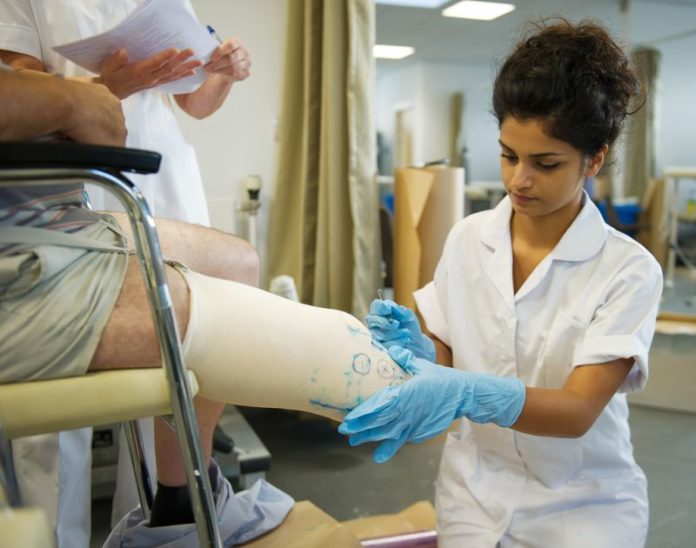THE UK is set to train many more highly skilled engineers in prosthetics and orthotics following the announcement of a new global centre of excellence based at the University of Salford.
Worldwide demand for artificial limbs, braces, footwear and other devices which help people recover from injury is accelerating, but manufacturers and practitioners require a rare combination of clinical, medical and engineering skills.
The Centre, to be based at the University of Salford, is set to train up to 60 individuals to doctoral level over the next eight years to address the skills gap at home and abroad. Salford’s key collaborators the UK’s principal prosthetics and orthotics research centres: Imperial College London, the University of Strathclyde and the University of Southampton.
The £11million project, with £5.3M coming from the Engineering & Physical Sciences Research Council (EPSRC), partners the Centre with 27 industry and clinical collaborators, including two of the largest manufacturers of prosthetic and orthotic devices, Blatchford and Össur,and the global leader in research in the field, Northwestern University in the US.
Globally, 100 million people need prosthetic and orthotic devices, and this is rising rapidly. With most users now being of a working age,there is an ever-increasing need to develop more sophisticated devices suited to a range of diverse needs.” explained Centre director Malcolm Granat, Professor of Health & Rehabilitation Sciences at the University of Salford.
“There is a woeful shortage of research engineers who have a deep understanding of these challenges. Our expectation is that this new centre will create a talented workforce, who will be equipped to produce local and global solutions to transform lives.”
The majority of students will come from the UK, but the centre will also work to support training for students from low and middle-income countries, including Cambodia, Uganda and Jordan.







